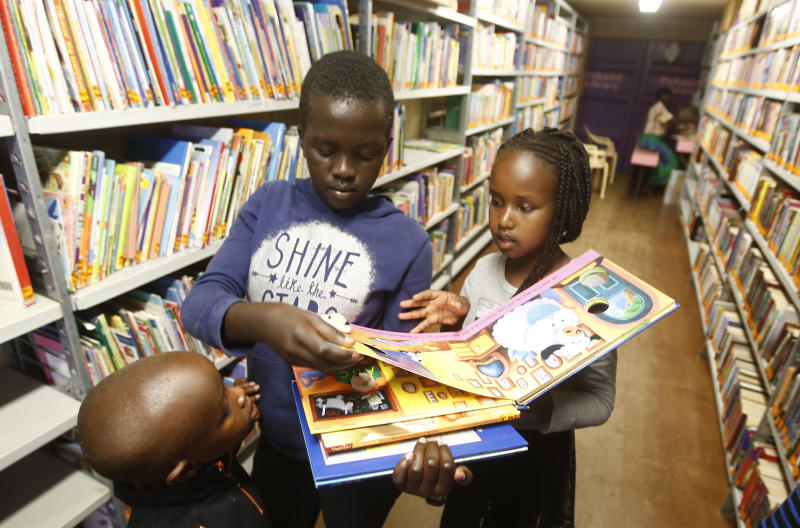×
The Standard e-Paper
Join Thousands Daily

It is a warm but dusty afternoon in Kabarnet town, Baringo County, a perfect time for children on holiday to play around.
The situation is, however, different here. The children are converged in a purple container, complete with shelves stocked with over 7,000 books.